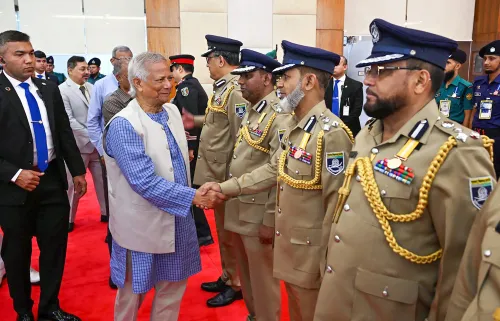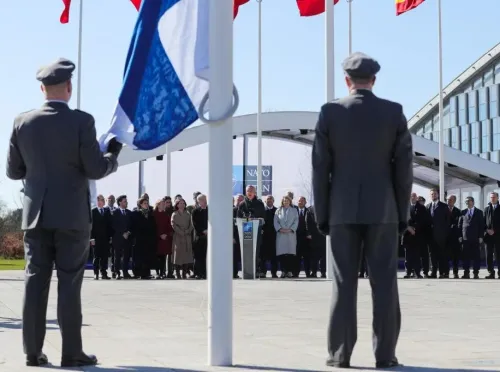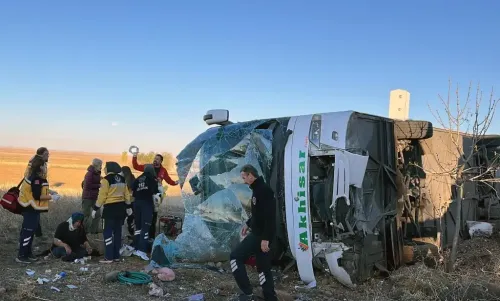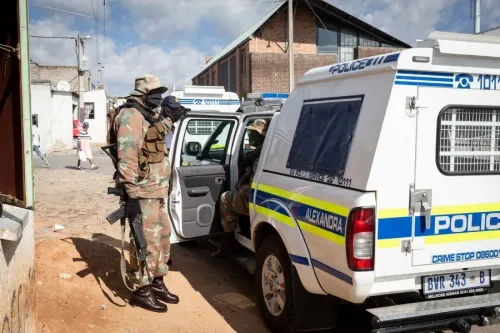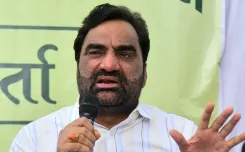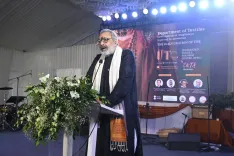What Will Happen If Lebanon Moves to Disarm Hezbollah?
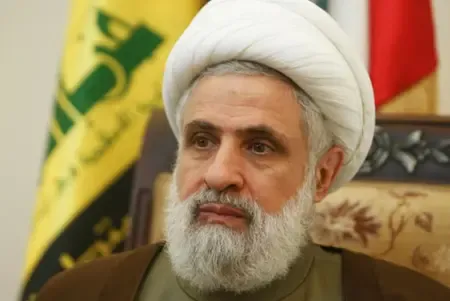
Synopsis
Key Takeaways
- Hezbollah threatens street action if disarmament proceeds.
- Political divisions are deepening in Lebanon.
- Hezbollah claims its arsenal is essential for defense.
- Implementation of disarmament may destabilize Lebanon.
- Dialogue remains a possibility for now.
Beirut, Sep 4 (NationPress) Hezbollah has issued a warning that it may mobilize its supporters onto the streets if the Lebanese government proceeds with plans to disarm the Iran-aligned group by the end of 2025, according to senior official Mahmoud Qomati.
Qomati, who serves as the deputy head of Hezbollah's Political Council, communicated to local media on Wednesday that such a plan is "unconstitutional, illegitimate, and a violation of both the national charter and international law, which recognizes resistance under occupation."
He stated that Hezbollah and its ally, the Amal Movement, would abstain from participating in parliamentary sessions if lawmakers moved forward with enforcing these measures, as reported by Xinhua news agency.
"Should we witness the session advancing to solidify these resolutions and outline steps for execution, we will not attend, and we will resort to popular confrontation," he warned.
Qomati indicated that Hezbollah would avoid escalating the situation if the decisions remained "born dead" and unenforced.
He cautioned that the implementation of these resolutions would lead to instability in Lebanon.
"Anyone aiming for stability—international, regional, or local—must acknowledge that enforcing these decisions will threaten it and serve no one’s interest," he added.
Recently, Lebanon's government approved a strategy to disarm all non-state actors, including Hezbollah, by the end of 2025.
This initiative has intensified political rifts and heightened concerns over instability.
Hezbollah has dismissed this plan, asserting its arsenal is essential for defending Lebanon against possible threats from Israel.
Hezbollah Chief Naim Qassem previously issued a stern warning to the Lebanese government regarding its disarmament efforts, claiming there would be "no life in Lebanon" should its weapons be forcibly confiscated.
Qassem insisted that Hezbollah would fight to retain its arms, stating that any attempt at forcible seizure would lead to internal turmoil, jeopardizing national security.
He further accused the government of capitulating to Israel, alleging that its leaders were "implementing an American-Israeli directive to dismantle the resistance, even at the cost of civil war and internal discord."
"The resistance will not surrender its arms while aggression continues, and occupation persists; we will fight against this American-Israeli agenda, regardless of the consequences," he warned, advising the government not to surrender the nation to an "insatiable Israeli aggressor or an American tyrant with limitless greed."
Hezbollah and the Amal movement, their Shia Muslim ally, have decided to postpone any street protests against a US-supported disarmament plan, as they still perceive potential for dialogue with the Lebanese government.
However, Qomati noted that future protests might extend to the US Embassy in Lebanon.
These threats come as the Lebanese Cabinet proceeds with a US-endorsed roadmap to disarm Hezbollah, adhering to a 2006 UN Security Council resolution that had largely been neglected until the organization faced significant setbacks during the recent conflict with Israel.
Hezbollah, an Iranian proxy, has generally acted in accordance with Tehran's directives over the years.
Iran and its so-called "axis of resistance"—which includes Hamas in Gaza and Yemen's Houthis—have faced numerous challenges in their longstanding efforts to eliminate Israel following Hamas' initiation of the ongoing war with Gaza through its October 7, 2023, assault on southern Israeli communities.
Hezbollah suffered severe losses to its infrastructure and leadership after launching cross-border strikes on Israel immediately following the Hamas-led attack.
In September 2024, Israel initiated a significant offensive against Hezbollah, culminating in a ceasefire in November 2024.
Israel has signaled its readiness to engage in military actions if Beirut fails to address Hezbollah, frequently conducting airstrikes within Lebanon despite the truce.
The country claims these actions are in response to violations of the agreement, asserting that the terms of the truce permit such measures.


